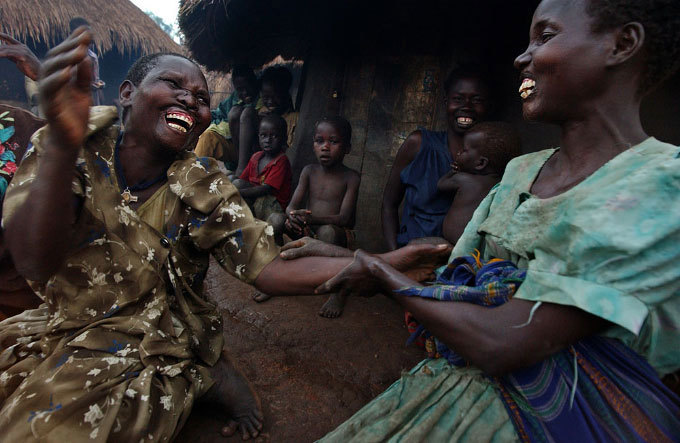PhD profiles: Communities consolidating peace in Northern Uganda
27 May 2015 | Story by Newsroom
In the run-up to the June 2015 graduation, we profile some of the research done by PhD graduates from December 2014. Meet Samson Barrigye, whose doctoral research focused on the role of ordinary Uganda citizens in peacemaking and conflict resolution, and advocated for more bottom-up processes in which communities can participate.
Northern Uganda experienced one of Africa's longest-running armed conflicts from 1987 to 2007.
Barrigye's study considered how women participants in the peace process that followed were only given 'observer status'. Religious and cultural leaders, who represented the local communities at the peace talks acted as informal mediators, while unclear selection criteria and ambiguous mandates of representatives caused problems of legitimacy.
In his thesis, "Sustaining the peace in Northern Uganda: Exploring the potential for community participation in conflict resolution processes", Barrigye suggests that including community members and aspects of their traditional conflict resolution practices are key factors in democratising the peace process.
"During the Northern Uganda peace process, there was a lack of communication, and community members were not fully informed of the developments taking place during the Juba peace talks.
"The Acholi traditional conflict resolution practices were not optimally used, since the elite negotiators adopted the western model of peacemaking processes."
Barrigye describes Mato Oput as an indigenous conflict resolution practice among the Acholi people of Northern Uganda, which emphasises truth telling.
He argues for enabling mechanisms that could enhance the participation of the Acholi people, who have experienced the disempowering impact of internal displacement during the conflict.
Barrigye, who has worked in conflict-affected communities (including in Northern Uganda) for more than 15 years, says the marginalisation, exclusion and under-representation of communities had motivated him to undertake his PhD research.
"There have not been many studies focusing on community participation in peacemaking and conflict resolution processes, partly because peacemaking and conflict resolution processes have been dominated by the elite. Also, many studies have focused on processes of establishing mechanisms for justice for the war-affected population.
"This study will seek to give voice to the people of Northern Uganda in order to help identify building blocks to a just and lasting peace."
Barrigye hopes his study will lead to a realisation of the importance of setting up community mechanisms and infrastructure for community involvement in peacemaking and conflict resolution.
Barrigye, who graduated with a PhD from UCT's Department of Social Development in December 2014, holds an MA in Peace and Conflict Studies from Makerere University (Uganda) and an MA in Post-war Recovery Studies from the University of York (United Kingdom).
Story by Kim Cloete.
 This work is licensed under a Creative Commons Attribution-NoDerivatives 4.0 International License.
This work is licensed under a Creative Commons Attribution-NoDerivatives 4.0 International License.
Please view the republishing articles page for more information.










